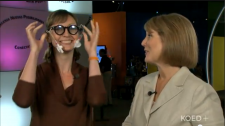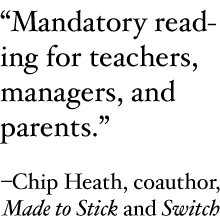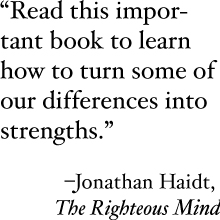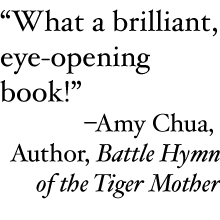
WNYC’s Brian Lehrer talks about CLASH! with Hazel Rose Markus. The show’s website is also featuring an excerpt from Chapter 1: Hearts and Minds, East and West.

WNYC’s Brian Lehrer talks about CLASH! with Hazel Rose Markus. The show’s website is also featuring an excerpt from Chapter 1: Hearts and Minds, East and West.

Alana and Hazel opined on “Accidental Racist” by Brad Paisley and LL Cool J in The New York Times’ “Room for Debate.”
Because popular music lyrics are so memorable and pervasive, they powerfully shape individuals’ thoughts, feelings and actions. How many of us could not recall, even if our lives depended on it, the basics of algebra we worked so hard to memorize, and yet know every word of Abba’s “Dancing Queen,” even though we’ve tried hard to keep it out of our heads?
Like many social and cultural forces, once lyrics weasel their way into our unconscious minds, they subtly direct our behavior. And so it is good and right to examine what LL Cool J and Brad Paisley are crooning about in a heavily promoted product of the musical industrial complex. Both artists are naïve to think that other people should look past their cultural accoutrements — the do-rags and red flags — to “get to know me.” The notion that our cultures and our selves can be cleanly separated is a myth.
Behind this naïvete, however, are two well-intentioned people attempting to negotiate their cultural differences in front of an audience of millions. Their duet is one of the more socially salubrious entries in our collective playlist, which is otherwise clotted with racist, sexist, classist and regionist warblings. And unlike the “Ebony and Ivory” of yore, “Accidental Racist” does not conclude that “people are the same wherever you go.” Instead, the song begins to grapple, however clumsily, with the fact that people are deeply different. One group’s cherished cultural symbols are sometimes another group’s heartaches or nightmares. How we as a multicultural society can reconcile these culture clashes is a much longer conversation.
What do you think about the duet? Is it really a cross-cultural bridge-building, or a poorly timed apology for the Confederate flag?
“This book is a passkey that opens many doors. Using one simple principle, Clash! explains some of the most bedeviling cultural divides in our workplaces and communities. It’s mandatory reading for teachers, managers, and parents who want to raise their kids to succeed in a multicultural world.”—Chip Heath, PhD, coauthor, Decisive: How To Make Better Choices in Life and Work and Switch: How To Change When Change Is Hard
“What a brilliant, eye-opening book! Filled with insight, and based on fascinating original research, Clash! offers a way to understand and break through some of the deepest cultural divides of our time. It’s a page-turner — fun, witty, engagingly written.”—Amy Chua, author of Battle Hymn of the Tiger Mother
“If you fear that cultural, political, and class differences are tearing America apart, read this important book to learn how we can turn some of our differences into strengths.”—Jonathan Haidt, PhD, author of The Righteous Mind;
“Clash! offers deep insights into how our cultures and culture clashes make us who we are, and how that matters for success in the 21st century. Everyone should read this book.”—Carol S. Dweck, PhD, author of Mindset
“In these days of heedless enthusiasm for gene maps and brain scans, Clash! reminds us that human beings are, above all, culture-bearing, culture-sharing, and culture-shaping animals. This thoroughly engaging book shows that to know a person, one must know a culture.”—Barry Schwartz, PhD, author of The Paradox of Choice and Practical Wisdom
“Better than any book I know, Clash! illuminates the cultural influences in our everyday lives and how they underlie the major identity clashes of our times. This delightfully written book also imparts a better understanding of ourselves.”—Claude Steele, PhD, author, Whistling Vivaldi: How Stereotypes Affect Us and What We Can Do
“A brilliant and highly accessible exposition of new scientific findings about profound cultural differences. As the world grows smaller and flatter, the wisdom of Clash! will prove essential for effective functioning.”—Richard E. Nisbett, PhD, author, Intelligence and How to Get It
“Finally! An entertaining and scientifically rigorous explanation of how our cultures work on us and how we can work on them. Clash! is a must-read for crafting effective personal change strategies that work within and across most cultures.”—Philip Zimbardo, PhD, author, The Lucifer Effect
“In the conflict of cultures lies, paradoxically, the ability to construct a self with integrity, agility, and the potential to grow in ways previously unimagined. Full of good science and sage advice, Clash! provides the evidence and strength to approach the hard question, “Who am I?”—Mahzarin Banaji, PhD, coauthor, Blindspot: Hidden Biases of Good People
“In this eye-opening guide to becoming a more complete person in a divided world, difference (ethnic, religious, racial, political, gender) is a virtue. Clash! expresses the biggest idea in cultural psychology of the past three decades.”—Richard Shweder, PhD, author, Why Do Men Barbecue? Recipes for Cultural Psychology
“We all see the daily battles around us – liberals versus conservatives, religious conservatives versus the more secular, and so on. This book explains why these battles are so fierce and the sides seem so unwilling to compromise.”—Ed Diener, PhD, coauthor, Happiness: Unlocking the Mysteries of Psychological Wealth

Hazel and I once again contributed to Edge.org’s annual compendium of ideas. In response to the 2012 question, “What is your favorite deep, elegant, or beautiful explanation?” we riffed on Descartes to summarize the big idea behind social and cultural psychology.
“I think, therefore I am.” Cogito ergo sum. Remember this elegant and deep idea from René Descartes’ Principles of Philosophy? The fact that a person is contemplating whether she exists, Descartes argued, is proof that she, indeed, actually does exist. With this single statement, Descartes knit together two central ideas of Western philosophy: 1) thinking is powerful, and 2) individuals play a big role in creating their own I’s—that is, their psyches, minds, souls, or selves.
Most of us learn “the cogito” at some point during our formal education. Yet far fewer of us study an equally deep and elegant idea from social psychology: Other people’s thinking likewise powerfully shapes the I’s that we are. Indeed, in many situations, other people’s thinking has a bigger impact on our own thoughts, feelings, and actions than do the thoughts we conjure while philosophizing alone.
In other words, much of the time, “You think, therefore I am.” For better and for worse.
An everyday instance of how your thinking affects other people’s being is the Pygmalion effect. Psychologists Robert Rosenthal and Lenore Jacobson captured this effect in a classic 1963 study. After giving an IQ test to elementary school students, the researchers told the teachers which students would be “academic spurters” because of their allegedly high IQs. In reality, these students’ IQs were no higher than those of the “normal” students. At the end of the school year, the researchers found that the “spurters’” had attained better grades and higher IQs than the “normals.” The reason? Teachers had expected more from the spurters, and thus given them more time, attention, and care. And the conclusion? Expect more from students, and get better results.
A less sanguine example of how much our thoughts affect other people’s I’s is stereotype threat. Stereotypes are clouds of attitudes, beliefs, and expectations that follow around a group of people. A stereotype in the air over African Americans is that they are bad at school. Women labor under the stereotype that they suck at math.
As social psychologist Claude Steele and others have demonstrated in hundreds of studies, when researchers conjure these stereotypes—even subtly, by, say, asking people to write down their race or gender before taking a test—students from the stereotyped groups score lower than the stereotype-free group. But when researchers do not mention other people’s negative views, the stereotyped groups meet or even exceed their competition. The researchers show that students under stereotype threat are so anxious about confirming the stereotype that they choke on the test. With repeated failures, they seek their fortunes in other domains. In this tragic way, other people’s thoughts deform the I’s of promising students.
As the planet gets smaller and hotter, knowing that “You think, therefore I am” could help us more readily understand how we affect our neighbours and how our neighbours affect us. Not acknowledging how much we impact each other, in contrast, could lead us to repeat the same mistakes.
Alana presented the Culture Lab’s research on choice in India, China, and working-class America at the Yale China India Insights Conference. Click this post to watch a video of her talk.

Hazel laid out some of the basic ideas of our book Clash! at the Being Human forum in Sausalito, CA. Her talk was titled, “Being Human Goes Beyond the Biological.”
Click this post to watch the click video.

As a guest on KQED+’s The History Quiz, Alana reveals the secrets of Silver’s adaptive eyeglasses, the original Engelbart mouse, a Lunar Rover antenna, and an antique transit compass. Click this post to watch the videos.


